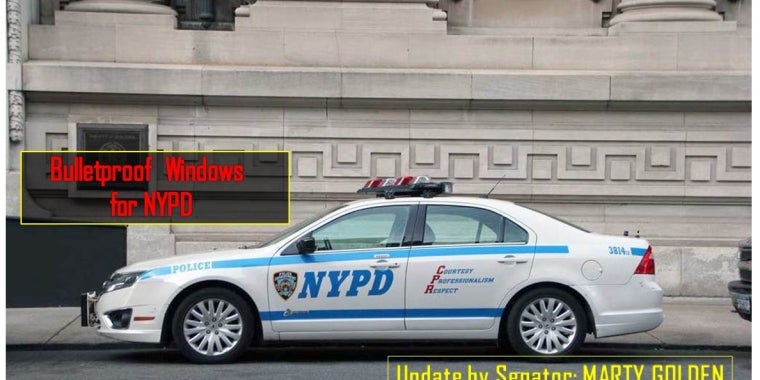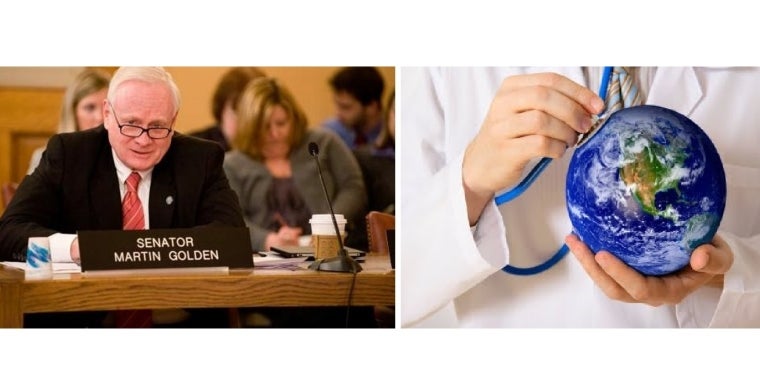
Senator Golden's Tips For Getting The Most Out Of Your Gas Tank
SENATOR GOLDEN’S TIPS FOR GETTING THE MOST OUT OF YOUR GAS TANK
Following a summer of record high gas prices, Senator Martin J. Golden (R-C, Brooklyn) has issued some easy tips to save money at the pump. It is expected that as a result of the hurricane season in the Gulf of Mexico, and fluxuation in the international markets, that prices could rise quickly during the winter.
"Last year, the Senate lead the fight to eliminate the State’s sales tax on gas in order to help our working families deal with high fuel costs. The bottom line is that a few small actions can result in big savings for you and your family," said Senator Golden.
Maintenance & Fuel
·
Replace air and fuel filters regularly as instructed by your vehicle's maintenance manual; change air filter more often if driving in dusty conditions.·
Keep engine properly tuned.·
Use API certified "Energy Conserving" motor oil, either conventional or synthetic. Use the service classification and viscosity specified for your vehicle. Example: SJ and 5W-30. Follow use/change interval in vehicle owner's manual.·
Do not buy "aggressive" tread tires if you do not need them.·
Keep tires properly inflated and wheels aligned.·
Do not use mid-grade or premium grade gasoline unless specified for your vehicle. Older vehicles may require these grades to avoid "knock" which reduces power and may damage the engine.·
Do not overfill the tank.·
Determine gasoline mileage periodically. Declining mileage can be an early indicator of mechanical problems or a need for servicing.·
Store emergency fuel supply or fuel for gasoline-fueled power equipment in sealed, airtight containers and it will still be usable in another season.Driving
·
Avoid rapid acceleration; the faster you accelerate the more gas is burned; relatively little fuel is consumed to maintain speed.·
Avoid hard braking and sudden stops. Stay alert and anticipate traffic lights, stop signs and merges. Use turn signals. Traffic will move more smoothly, which saves fuel for everyone.·
When starting out, shift up to the next gear (manual transmission) as soon as possible without straining the engine.·
Drive more slowly. One study reported that for all vehicles tested there was at least 20% loss in fuel economy from 55 to 75 mph. So, 20 mpg at 55 mph becomes 16 mpg or less at 75 mph.·
If your car has an instantaneous mpg indicator, use it to improve your driving efficiency.·
Remove extra weight from the car; 100 extra pounds may cost 1 mpg. Pack lightly for trips.·
Try to avoid using roof racks and remove when they are not in use.·
Use cruise control on highway trips.·
For any stop you expect to last more than a minute, shut of your engine rather than letting it idle.·
Do not warm engine up before driving; it is not necessary, even in cold weather.·
Do not rev engine before shutting it off; this wastes fuel and can dilute motor oil.·
Reduce the use of your air conditioner at low driving speeds. When driving over 40 mph using the air conditioner costs less fuel than having windows open.·
Park in the shade and/or leave windows slightly open to reduce the need for air conditioning.Trips, Errands, Commuting, Vacations
·
Carpool if possible for traveling to work or for errands. Combine errands to reduce the number of trips.·
Utilize mass transit. Support efforts to make mass transit more available.·
For shorter errands, consider walking or bicycling.·
Try to take one less car trip per week.·
Try to work or study at home at least part of the time.·
Consider living closer to where you work, or working closer to home.·
Consider shorter vacation and recreation trips; learn what's special in nearby nature, culture and history.Purchasing a Vehicle
In purchasing, consider buying:
·
the most fuel-efficient vehicle that will meet most of your needs, and rent a larger vehicle or a different kind for infrequent needs;·
a "hybrid" vehicle that combines a high-efficiency gasoline engine with an electric motor for greater fuel efficiency;·
fewer power options such as automatic transmission and especially air conditioner;·
2-wheel drive if you really don’t need 4-wheel drive."You can save money while reducing gas consumption and air pollution by following some of the tips listed here. Only you can decided which of these steps are best for you, buy any of them will save you money on what you spend on gasoline," concluded Senator Golden.



